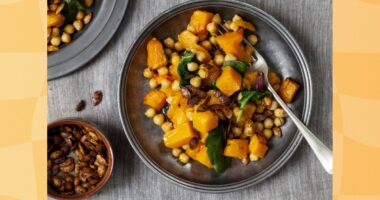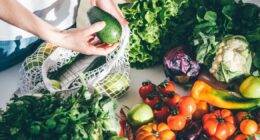Vitamin A is actually a general term that refers to a larger group of fat-soluble compounds. Fat-soluble vitamins are different from water-soluble vitamins because they need to be consumed with a source of fat in order to be absorbed and used effectively. Vitamin A is found in animal sources as preformed vitamin A and in fruits and vegetables as provitamin A carotenoids. Provitamin A carotenoids differ from the preformed vitamin A found in animal sources because they need to be converted to an active form of Vitamin A in the body whereas preformed vitamin A is already in its active form. In plant foods that contain vitamin A, specifically cantaloupe, the carotenoids found are beta carotene.
You may have heard of beta carotene before, especially in regards to vibrant orange and yellow fruits and vegetables like carrots and sweet potatoes. Orange and yellow plants get their color from carotenoids which are simply pigments synthesized by the plant. Carotenoids are powerful antioxidants that may be responsible for cancer prevention and reduced risk of cardiovascular disease.
Cantaloupe is an excellent source of provitamin A carotenoids. One-half of a medium-sized cantaloupe contains roughly 15% of the daily recommended intake of vitamin A per day. Although the form of Vitamin A in cantaloupe is in the form of beta carotene which needs to be activated in the body, this is still considered a good source of vitamin A, which is great news for vegans.
Vitamin A is crucial for growth and development, hormonal health, immune function, and effective cellular communication. Most well-known for its role in eye health, vitamin A is an essential component of one of the proteins in the eye that responds to light. For women, consuming enough vitamin A is important for the optimal functioning of iron in the body as the two work synergistically.
Because vitamin A is fat-soluble, it is important to consume your cantaloupe with healthy fat to help absorption. Some tasty ideas include cantaloupe and full-fat cottage cheese, cantaloupe and avocado salad, or diced cantaloupe with shredded coconut flakes. An extra benefit of consuming cantaloupe frequently is that it will help with hydration. Cantaloupe is 90% water, meaning it will hydrate the cells of your body while nourishing them at the same time, pretty awesome.
Read the original article on Eat This, Not That!
Sydney Greene, MS, RD
Source:











